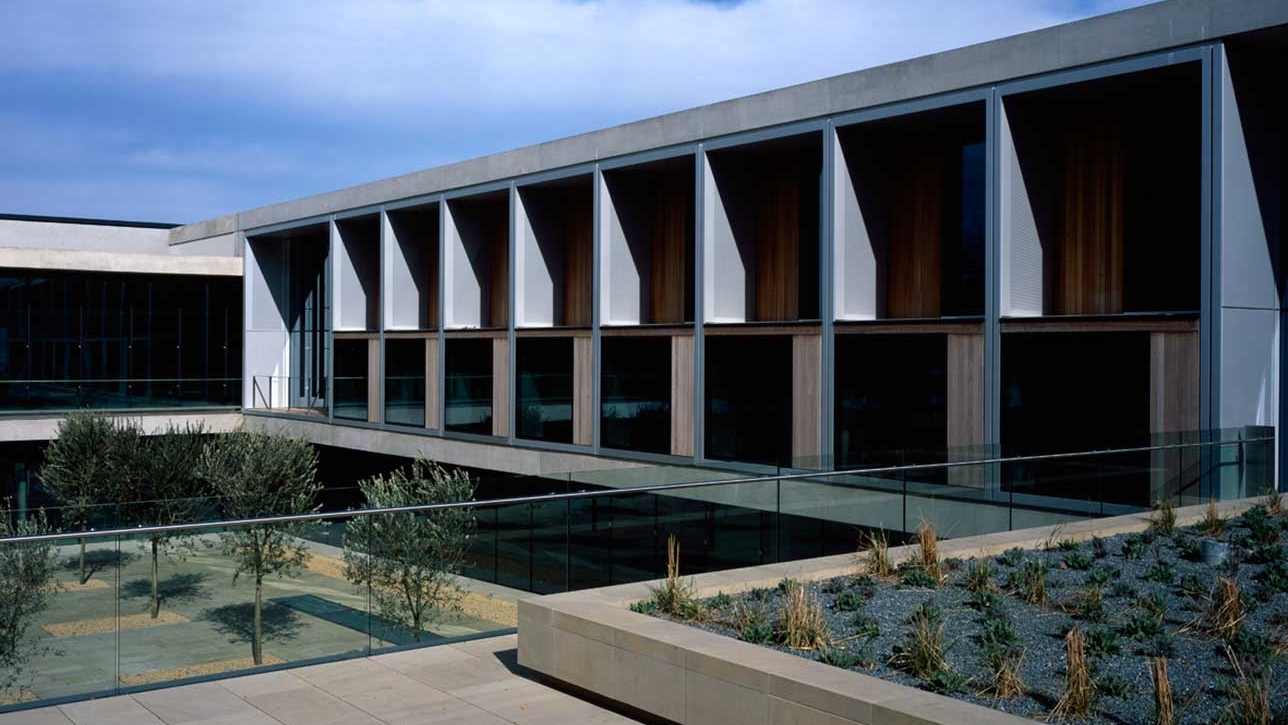
Director and Professor
Developing computational models describing complex processes at the cellular level
The Sainsbury Laboratory Cambridge University, opened in 2011, is made up of 150 scientists, technicians and support staff working at the frontiers of knowledge in plant growth and development, addressing some of the greatest challenges of the 21st century.
Gatsby's largest ever commitment in plant science has funded the building of a new state-of-the-art research institute – the Sainsbury Laboratory Cambridge University (SLCU). Set within the inspirational grounds of the University’s Botanic Garden, the aim of the Laboratory is to elucidate the regulatory systems underlying plant growth and development.
Plants are the foundation for virtually every ecosystem and agricultural system on Earth. A fundamental understanding of how plants grow and develop is therefore paramount for the long-term security of a sustainable supply of food and other plant products, such as fuel, fibres and building materials.
The study of plant development is being transformed by the new scientific and technical resources becoming available to biologists, including high-throughput DNA sequencing, new imaging methods, increasingly sophisticated genetic tools, and refined chemical interventions. The data derived from these approaches has opened the way for predictive computational models, which are essential for understanding the dynamic, self-organising properties of plants.
We now have an unprecedented opportunity to obtain an integrated understanding of plant development, setting the stage for a new synthesis that will draw on molecular, cellular, whole plant, and population biology to elucidate how plants are constructed. SLCU is establishing a highly collaborative and interdisciplinary research environment that will capitalise on these exciting opportunities.
Director and Professor
Developing computational models describing complex processes at the cellular level
Deputy Director and Professor
Understanding how cells respond to environmental signals
Distinguished Research Associate
Investigating how shoot tips produce organs in regular patterns
Research Group Leader
The molecular underpinnings of plant diversity: Which genes control the development of plants? And how have these genes changed over the course of evolution?
Research Group Leader
Investigating the patterns and dynamics of plant hormones using fluroescent biosensors
Research Group Leader
Understanding the role of plant hormones, such as auxin, in plant developmental plasticity
Research Group Leader
Investigating mechanisms that account for pattern formation in petals at the molecular, cellular, biophysical and ecological levels
Research Group Leader
Studying cell morphogenesis and developmental biology
Career Development Fellow
Investigationg how novel plant organs of diverse form and function can be generated
Research Group Leader
Investigating the symbiotic processes between microbes and plants
Research Group Leader
Investigating how plant development (cell division and cell expansion) is controlled
Career Development Fellow
Investigating long-term processes in plant development using evolutionary developmental biology (evo-devo) models
Career Development Fellow
Understanding how plants pattern themselves in three dimensions